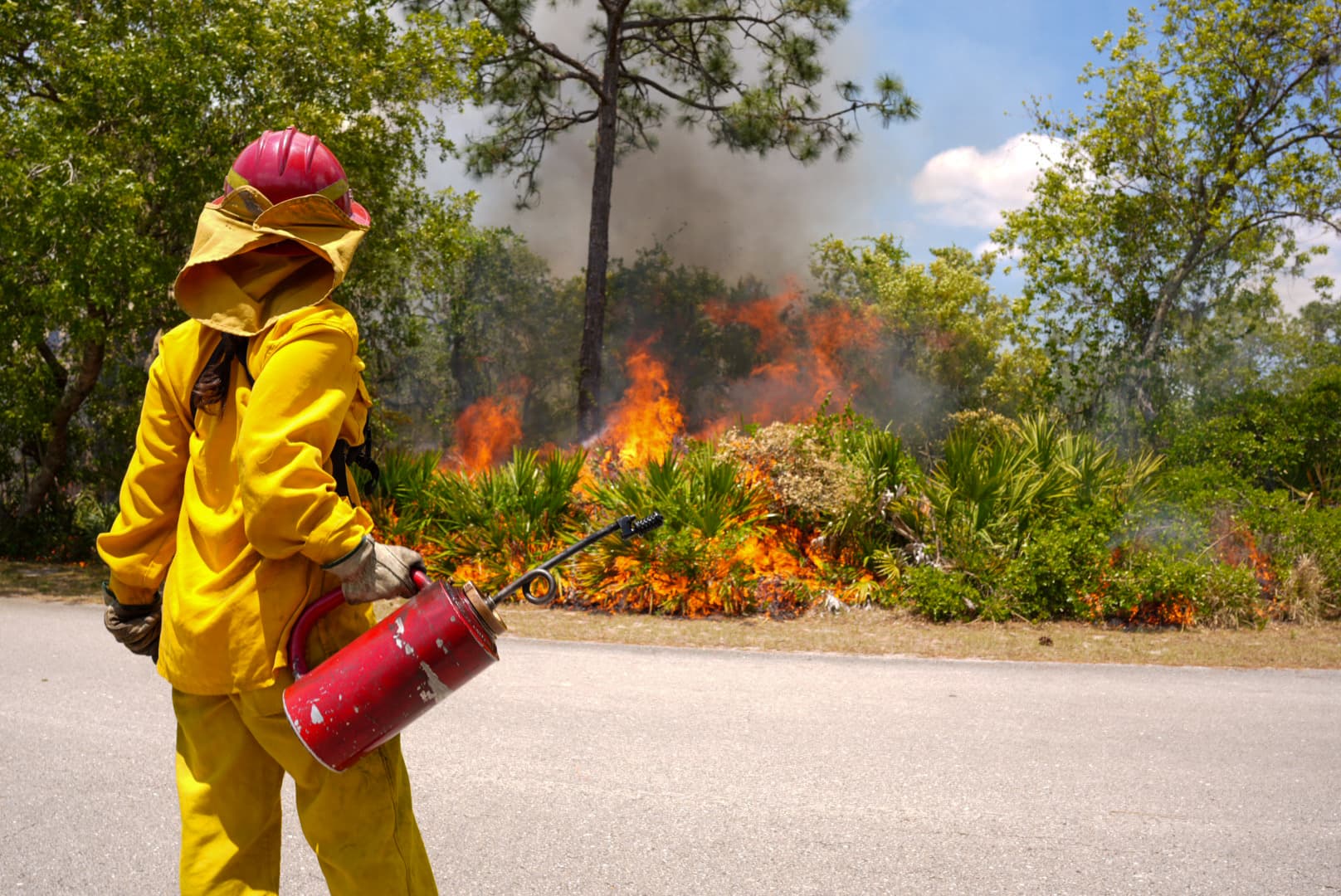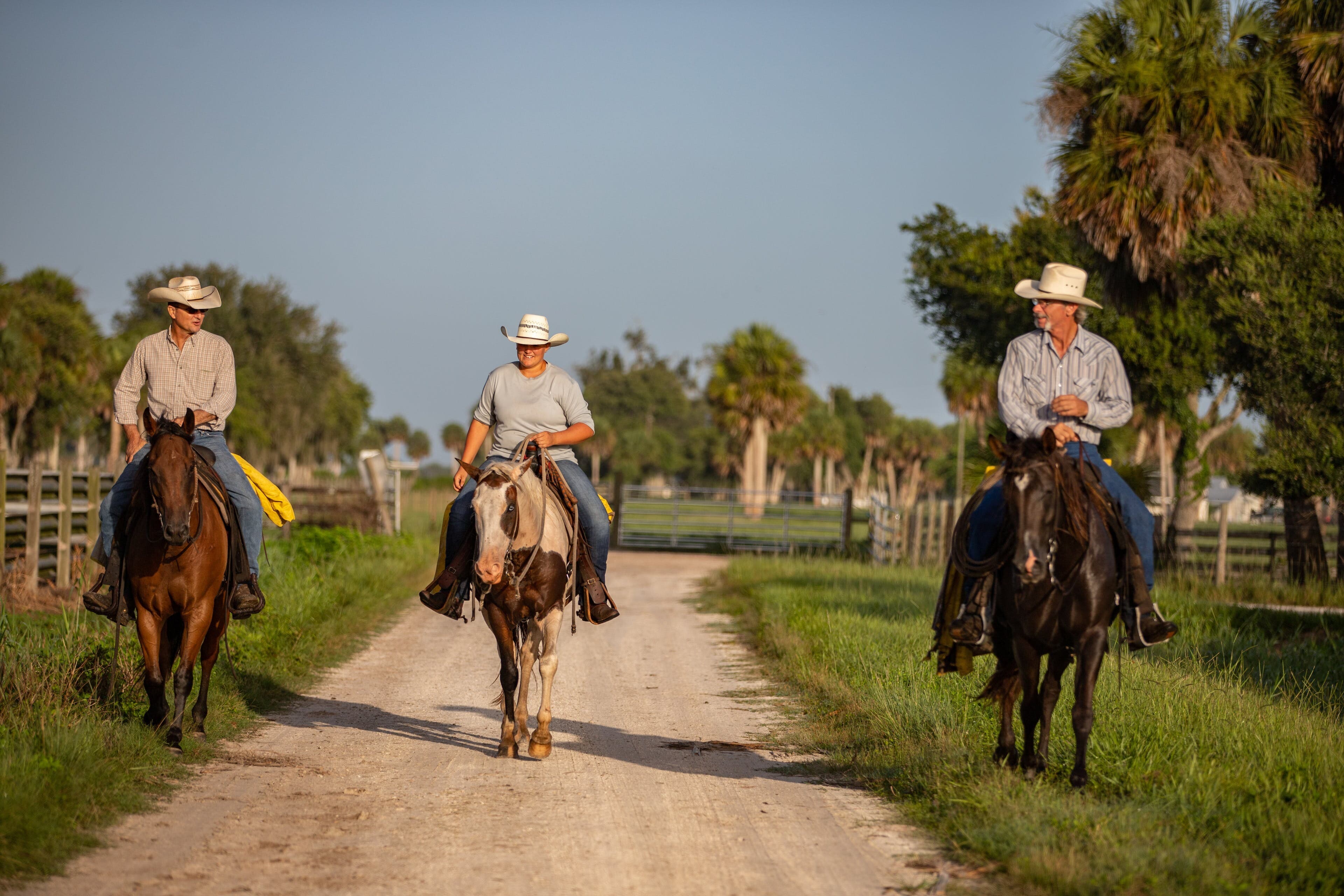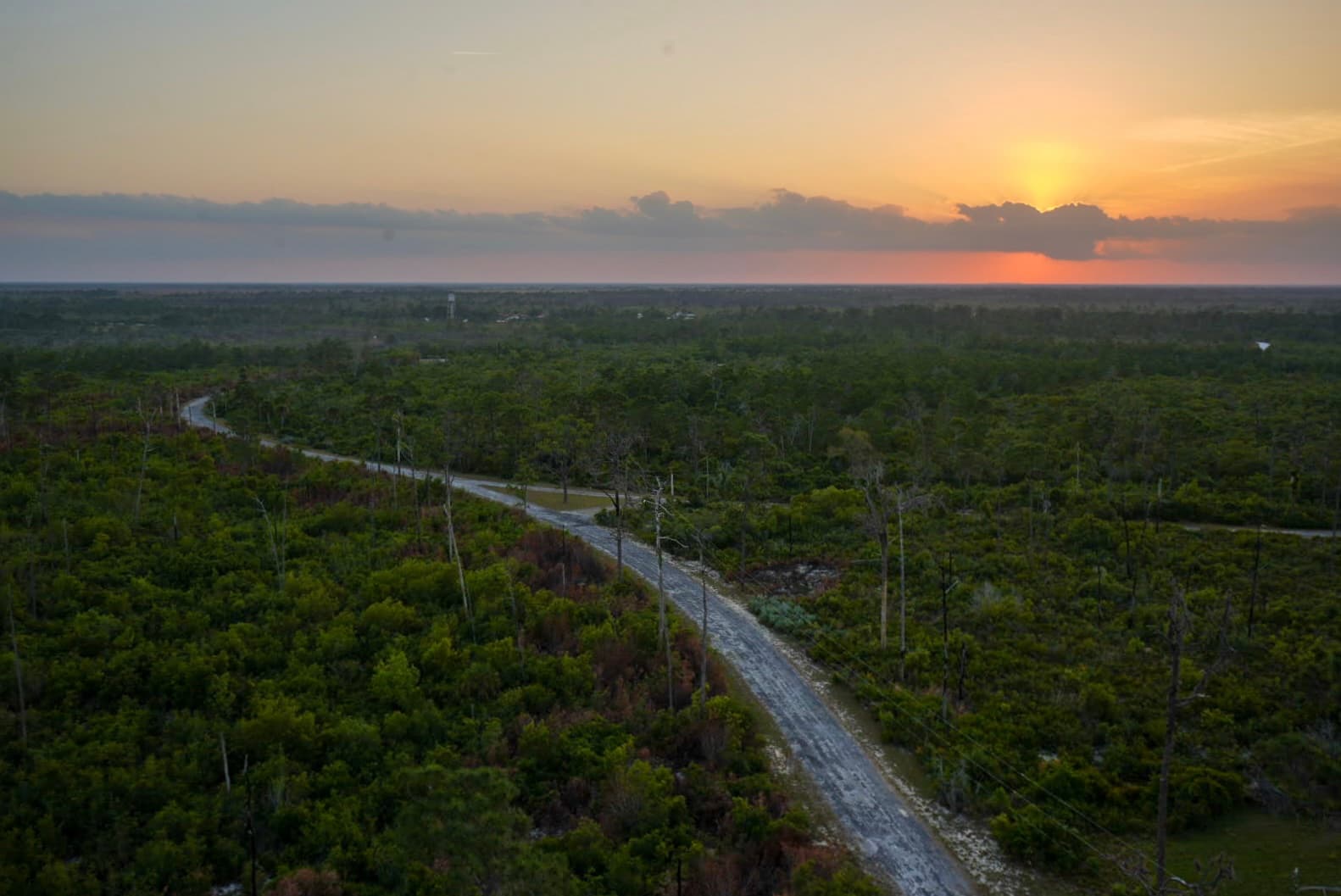 Photo by: Zach Franco
Photo by: Zach FrancoLandowner Assistance Resources
Partners, programs, tools and other resources to assist landowners in conserving and protecting the natural resources on their land
Practitioners and Connectors
Archbold operates uniquely as a research institute and a conservation-minded landowner. We manage our nearly 20,000 acres with the financial support of programs such as the federal Wetland and Grassland Reserve Easements, Agricultural Land Easements, Environmental Quality Incentive Program, Florida’s Rural and Family Lands Protection Program, and more. We also act as a bridge organization connecting interested landowners with the assistance programs that best fit their needs.
Groups like the federal Natural Resources Conservation Service (NRCS), Florida Fish and Wildlife Conservation Commission’s (FWC) Landowner Assistance Program, and land trusts are designed to support landowners. They provide technical and financial assistance to keep working lands working and managed as ecologically important parts of the broader ecosystems. Grants and other funding tools can simultaneously boost agricultural productivity and compensate landowners for natural resource stewardship and management.
This page lays out specific tools and definitions, and directs interested landowners to concrete resources, databases and partners who can help.
Terms & Definitions:
- Technical Assistance: Certain sets of knowledge and tools to equip and uplift farmers, ranchers, and other landowners to be able to conserve, maintain and restore the natural resources on their land and improve the health, sustainability, and longevity of their operations (i.e. conservation plans, land management plans, workshops). May take the form of grazing or management plans or restoration designs.
- Financial Assistance: Money in the form of supplemental income, tax write-offs, yearly payments, etc., that help landowners implement conservation practices and natural resource solutions or that act as incentives for certain ecosystem services and efforts.
- Conservation easement: Voluntary land conservation tool, often referred to as less-than-fee acquisition, wherein the landowner sells the right of development or conversion to more intensive land use to a buyer (usually a land trust, NGO, or government agency). The landowner retains all other rights of land ownership and management. The easement protects the land from development or disruption in perpetuity or for an agreed-upon duration. Meanwhile easements can also compensate landowners and allow continued land use such as agriculture. Individual contracts vary in their conditions and can be negotiated.
- Land Management Plan: A guide that lays out a landowner’s property and natural resource history, assessment, and overall objectives and offers a timeline and series of recommended activities – such as forest regeneration methods, prescribed burn plans, rotation and prescribed grazing practices, and other Best Management Practices -- to manage the land most effectively to meet those goals. Many partners provide cost-free assistance for landowners to develop plans.
- Land Trust: Non-profit organizations dedicated to working with landowners to protect and conserve their land. Land trusts guide and support landowners through the conservation process and may purchase or hold easement rights. To find partnering land trusts near you, go to https://landtrustalliance.org/land-trusts
Resources, Programs, and Partners
Sentinel Landscape Landowner Resources
The Sentinel Landscape Landowner Resources Database makes it simple for landowners to search for and access information about federal, state, and local programs that support sustainable land management catered to their needs. The tool allows you to select filters such as category of assistance, benefit type, and state.
Sentinel Landscape Partnership Conservation Guide
This guide lays out the benefits of conservation and it contains an easily accessible and engaging spreadsheet that lists a series of popular programs and the types of land use and available assistance applicable to them
Landowner Resource and Assistance Map Viewer
Each region, county, and property has its own unique natural resource makeup, challenges, and needs. This interface, created by the Conservation Biology Institute, allows landowners and partners to access local watershed-specific data and information on priority natural resources, biodiversity richness, land uses and threats facing the land, and much more. It also provides a list linking to specific financial and technical assistance programs available to private landowners that apply to their watershed.
USDA Natural Resources Conservation Service (NRCS)
NRCS offers a series of programs that help producers reduce soil erosion, build management infrastructure like fences and fire breaks, enhance water supplies, improve water quality, increase wildlife habitat, and reduce damage caused by floods and other natural disasters. Local agents work directly with landowners to determine individual needs and best approaches to providing financial and free technical assistance to improve agricultural productivity and natural resource management. To learn more or get started, contact your local service center.
Florida Fish and Wildlife Conservation Commission's (FWC) Landowner Assistance Program (LAP)
This program offers free technical assistance and guidance on managing land to benefit both wildlife and landowner goals. At no cost, and with no acreage limitations, wildlife biologists will work directly with interested landowners to not only prepare management plans, but connect them directly with a broad range of natural resource, conservation and land management funding and support programs – both from FWC and statewide partners.
The U.S. Fish and Wildlife Service Partners for Fish and Wildlife Program
Available to landowners, land managers, tribes, schools, nonprofits and corporations, the Partners for Fish and Wildlife Program offers free technical and financial assistance for those interested in improving wildlife habitat on their land. Regional staff work to design, supervise, and monitor projects that include land management plans, habitat restoration, and more. Many active projects take place on working lands, and all private landowners, including ranchers, farmers, foresters, local governments, etc., are eligible to participate. Participants are not required to forfeit any property rights or allow public access.
Florida Forever
Conservation and recreation lands acquisition program dedicated toward conserving Florida’s natural and cultural heritage. Federal, state and local agencies, along with conservation organizations and private citizens are eligible to sponsor a project. FF is a willing seller program, granting the state or a land trust rights to the land; landowners may retain title to the property along with certain negotiated rights while protecting the natural resource values of the property.
Rural and Family Lands Protection Program
Agricultural land preservation program to protect important agricultural lands through agricultural land conservation easements. Protects sustainable agricultural practices and reasonable protection of natural resources without interfering with agricultural operations.
UF/IFAS Extension
Extension offers education to producers across the state, ensuring that the crop varieties they grow and the management methods they use are all backed by the best science available. Whether it’s citrus or soil, livestock or lettuce, find resources from UF/IFAS experts on topics that span the entirety of agriculture.
Why can’t animals pass easily through neighborhoods or across roads?
Developed areas may not offer the food, shelter, and safety that an animal needs. Roads, on the other hand, can be very dangerous for animals – vehicle collisions are one of the leading causes of death for wildlife in Florida, accounting for almost 90% of known Black Bear deaths and 60% of Florida Panther deaths. Those collisions can be dangerous for the humans inside the car, too. That’s why wildlife road crossings (like bridges or tunnels) built for wildlife are so important for making sure that wildlife can move safely across the landscape.
How big does a piece of land need to be for it to be a useful corridor connector? The necessary width of a wildlife corridor depends on a lot of factors, including the animal species in question, the type of land use that surrounds it, how long the corridor is, and more.
Navigating Carbon Markets
A guide for Florida ranchers and landowners. Many Florida ranchers have been approached by organizations that buy and sell carbon (or greenhouse gas) credits. Despite their increasing popularity and great potential, carbon markets are still in development and remain a “Wild West”.
Regional News, Updates, & Events
With further questions or inquiries about which resources might be best for you, contact Conservation staff at jdaskin@archbold-station.org or zfranco@archbold-station.org.
Related Projects
Loading


